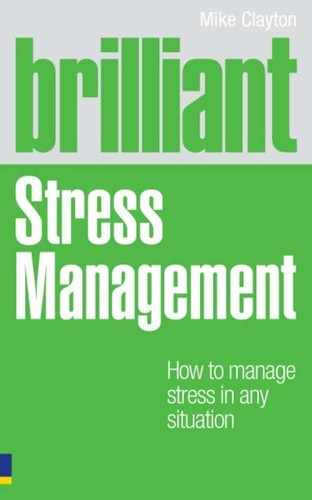78 brilliant stress management
If you are able to assess separately what is urgent (subject to
real time pressure) and what is important (with real conse-
quences), you can start to prioritise the demands on your time.
You can neglect things that are neither urgent nor important
– and you should. Things that are urgent but not important
can also be neglected, but if you do choose to do them, tackle
them quickly and do not invest more time than you need to, to
meet a minimum standard. Important and urgent things need
your attention now, and you should give them all the time they
need. Once you really gain control of your time, you will start
to nd your days lled with things that are important but not
urgent.
They may have become urgent to you in the past, but you are
now so ‘in control’, that you are getting them completed in good
time, before they can become urgent and important. By now,
you will nd only one real criterion for assessing importance:
‘How much can this activity contribute to my goals?’
Time
Once you have a closed list of activities for the coming day, the
next step is to estimate how long each one will take. You may not
be good at estimating timings now, but if you get into the habit
of doing it every time, you will nd, almost magically, that you
start to get better and better at it, as your brain starts to recog-
nise patterns and home in on them.
Underestimation
Underestimating how long things will take is another cause of
stress. As you near your estimated completion time and things
aren’t done yet, your body will start to react to the threat that
this, and then the next thing, won’t get done, and the pos-
sible consequences of incomplete activities and unrealised
outcomes. This is especially so if you have been diligent in
..................Content has been hidden....................
You can't read the all page of ebook, please click here login for view all page.
